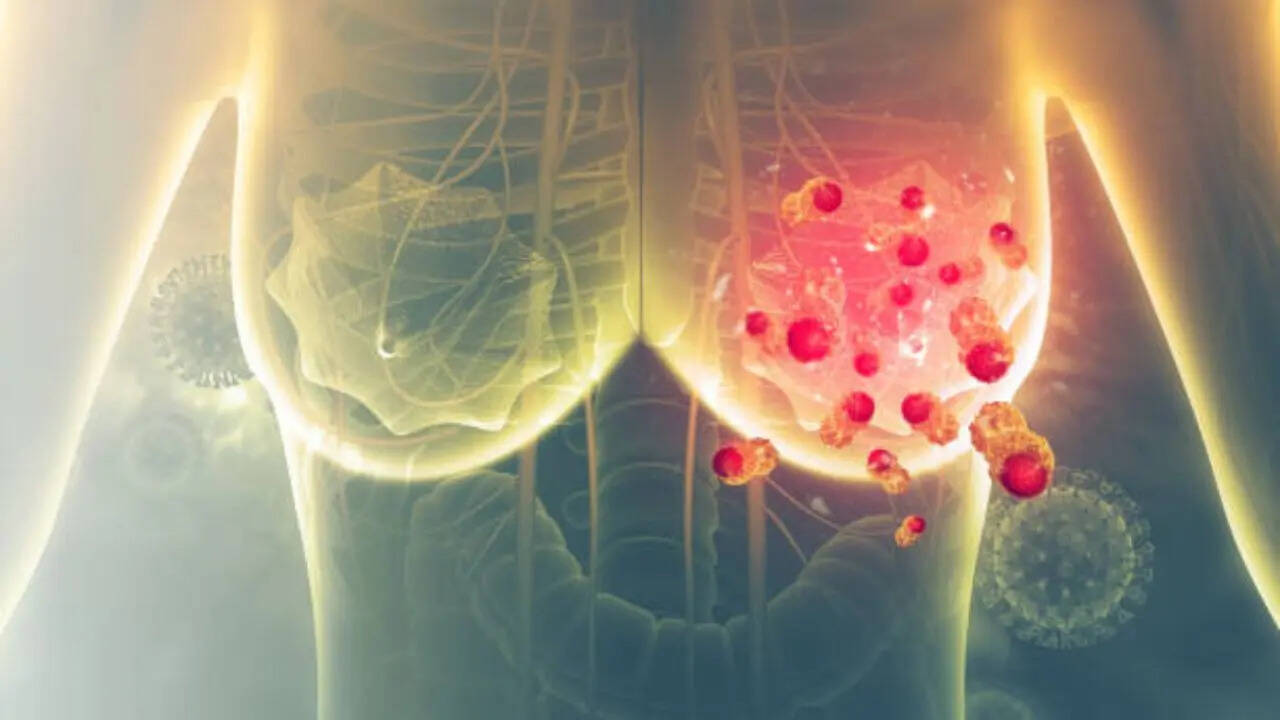Health
Stage 4 Breast Cancer Survivor Shares Journey from Pain to Hope

A 35-year-old woman from South Asia, Bisma Lalji, recently shared her journey as a survivor of stage 4 breast cancer, highlighting how an initial symptom of back pain led to a life-altering diagnosis. In February 2023, Bisma received the shocking news that the cancer had advanced to her bones, despite her previously healthy lifestyle.
Bisma’s ordeal began with what she believed was simply back pain, which she initially dismissed. As the discomfort persisted, she attributed it to stress from her demanding job, where long hours and all-nighters were routine. “It was a Wednesday. I was on a work Zoom and literally out of nowhere started having excruciating back pain,” Bisma recounted in an Instagram reel. “I’m on a work call, so I’m holding in my panic and my pain.”
When the pain escalated, her family attempted to provide relief through painkillers and home remedies, but their efforts were in vain. “My mom was doing the typical South Asian mom thing, bringing fruit, making me eat, but it wasn’t helping,” she said. Concerned for her wellbeing, her father insisted they visit the emergency room.
At the hospital, doctors confirmed the unexpected diagnosis: stage 4 breast cancer that had silently spread to her spine. Further tests revealed a 1-cm tumor in her right breast. Tragically, Bisma was also pregnant at the time, leading to the difficult decision to terminate her pregnancy.
Despite these challenges, Bisma’s cancer is currently stable due to ongoing treatment, and she remains hopeful about her future. “I’m focusing on my health and recovery,” she stated, expressing gratitude for the support of her family and medical team.
Understanding Breast Cancer
Breast cancer is one of the most prevalent forms of cancer affecting women worldwide. It occurs when cancerous cells in the breast multiply uncontrollably, forming tumors. More than 80 percent of breast cancer cases are classified as invasive, meaning the tumors can spread beyond the breast to other areas of the body. While it most commonly affects women over the age of 50, younger women and men can also develop this disease.
Recognizing Symptoms
In addition to back pain, there are several other symptoms that individuals should be aware of when it comes to breast cancer. These include:
– A noticeable change in the size, shape, or contour of the breast.
– The presence of a mass or lump, which may be as small as a pea.
– Thickening of tissue in or near the breast or underarm that persists throughout the menstrual cycle.
– Changes in the skin on the breast or nipple, which may appear dimpled, scaly, or inflamed.
– A hardened area under the skin that feels like a marble.
– Discharge from the nipple that may be blood-stained or clear.
Bisma’s story serves as a vital reminder of the importance of listening to one’s body and seeking medical advice when symptoms arise. Her experience highlights the need for increased awareness about breast cancer, especially among younger women who may not recognize the signs. Through education and open discussions, individuals can empower themselves to take charge of their health.
-

 World5 months ago
World5 months agoSBI Announces QIP Floor Price at ₹811.05 Per Share
-

 Lifestyle5 months ago
Lifestyle5 months agoCept Unveils ₹3.1 Crore Urban Mobility Plan for Sustainable Growth
-

 Science4 months ago
Science4 months agoNew Blood Group Discovered in South Indian Woman at Rotary Centre
-

 World5 months ago
World5 months agoTorrential Rains Cause Flash Flooding in New York and New Jersey
-

 Top Stories5 months ago
Top Stories5 months agoKonkani Cultural Organisation to Host Pearl Jubilee in Abu Dhabi
-

 Sports4 months ago
Sports4 months agoBroad Advocates for Bowling Change Ahead of Final Test Against India
-

 Science5 months ago
Science5 months agoNothing Headphone 1 Review: A Bold Contender in Audio Design
-

 Top Stories5 months ago
Top Stories5 months agoAir India Crash Investigation Highlights Boeing Fuel Switch Concerns
-

 Business5 months ago
Business5 months agoIndian Stock Market Rebounds: Sensex and Nifty Rise After Four-Day Decline
-

 Sports4 months ago
Sports4 months agoCristian Totti Retires at 19: Pressure of Fame Takes Toll
-

 Politics5 months ago
Politics5 months agoAbandoned Doberman Finds New Home After Journey to Prague
-

 Top Stories5 months ago
Top Stories5 months agoPatna Bank Manager Abhishek Varun Found Dead in Well









